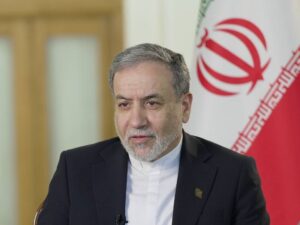
Published 11/22/2023 10:15 | Edited 11/22/2023 17:37
Israel and Hamas have agreed to a temporary pause in the war that will allow the release of around 50 people who have been held captive in Gaza since the armed group Hamas invaded southern Israel on October 7, in exchange for Palestinians held in prisons Israelis.
The Israeli cabinet supported the deal after negotiations on a Qatar-brokered deal continued until the early hours of Wednesday morning, with Israeli media reporting heated discussions between ministers in Prime Minister Benjamin Netanyahu’s government.
In the end, only three of the 38 cabinet members voted against the truce – the Minister of National Security, Itamar Ben-Gvir, and two other members of his far-right political party. For those who are patrons of the Jewish settlers in the West Bank, the “Hamas terrorists” must be killed, eradicated and expelled from the Gaza Strip, with the captives released voluntarily or by force, and they consider any suggestion of negotiation with Hamas an insult.
The prime minister’s office said the agreement would require Hamas to release at least 50 women and children during a four-day truce. For every 10 additional hostages released, the pause would be extended by one day, he said, without mentioning the release of Palestinian prisoners in return.
“The Israeli government is committed to returning all hostages home. This evening, it approved the proposed agreement as a first step towards achieving this objective”, he stated in his brief statement.
Hamas, which controls Gaza, also released a statement, confirming that 50 women and children detained in the territory would be released in exchange for Israel releasing 150 Palestinian women and children from Israeli prisons.
It stated that Israel would also halt all military actions in Gaza and that hundreds of trucks carrying humanitarian, medical and fuel aid would be allowed to enter the territory.
The agreement is the first truce in a war in which Israel has leveled vast areas of Gaza, where around 2.3 million people live. Palestinian officials say at least 14,100 people have been killed, while the United Nations says about 1.7 million people have been forced from their homes. Hamas killed at least 1,200 people in its attack on Israel.
US pressure
Officials from Qatar, the United States, Israel and Hamas have been suggesting for days that a deal was imminent.
In a statement released later, Qatar confirmed the “success” of mediation efforts, which also involved Egypt and the United States, and confirmed the general parameters of the agreement.
“The start time of the break will be announced within the next 24 hours and will last for four days, subject to extension,” the statement states.
Thanking the Emir of Qatar, Sheikh Tamim bin Hamad Al Thani, and the President of Egypt, Abdel Fattah el-Sisi, for their “critical leadership and partnership”, US President Joe Biden welcomed the agreement.
Before the meeting to discuss the deal, Netanyahu thanked Biden for his work to include more captives and fewer concessions in the agreement. In reality, it took significant pressure from the US to achieve this deal, which means that pressure from Biden will be key to achieving something more permanent.
Analysts argue that it is necessary to take advantage of this moment of truce to end the conflict definitively. It is also believed that the difficulty in implementing the agreement reveals how distant the possibility of ending the conflict is, with many agreements needed by then.
Netanyahu stressed that Israel had no intention of ending the conflict. “We are at war and we will continue the war until we achieve all our objectives,” he said in a recorded message. “To destroy Hamas, return all our hostages, and ensure that no entity in Gaza can threaten Israel.”
About 237 prisoners from Israel and several other countries are believed to be in Gaza, and Biden has said some Americans would be released during the upcoming pause. Other foreigners are not believed to be part of the agreement.
Hamas has released just four prisoners since the kidnappings took place more than a month ago – an American mother and her daughter and two elderly Israeli women. Some of the hostages were killed in an Israeli bombing, according to Hamas.
Benefit for Hamas
Geopolitical and security analyst Zoran Kusovac assessed, in an article for Aljazira, that the ambiguous truce agreement is an opportunity from which Hamas can benefit militarily, if it knows how to take advantage of its opportunistic diplomatic and tactical effects.
Having become the party that negotiates with the State of Israel, even through intermediaries, Hamas has gained political acceptance in the international community. In just six weeks since October 7th, its status has changed from “terrorists with whom any negotiations are unacceptable” to “an organization that has control on the ground”.
Although Israel and the United States continue to call him “terrorist”, a term that normally connotes “people we do not negotiate with”, they have recognized the reality and accepted the Palestinian organization as their opposing side in negotiations.
It is true that Hamas and Israel have negotiated truces in the past, always through the mediation of third parties, usually Egypt. But these were tactical battlefield issues, not full international agreements involving multiple states.
Kusovac points out that Hamas achieved an important psychological, political and strategic victory: the Israeli cabinet and the US president negotiated with Hamas, reached an agreement and publicly stated that they intend to honor it. Two months ago, today’s reality would have been unimaginable.
The name of the agreement is vague, possibly deliberately so: Qatar’s official statement calls it a “humanitarian pause”, but the media in the Arab world and Israel seem to prefer “truce” or “ceasefire”, as do the world media. In addition to the difference in meaning between these terms, this reflects how sensitive the indirect negotiations that lasted weeks must have been.
There are several other ambiguities, such as the duration of the truce and when this difficult agreement will come into force – this will be announced later this Wednesday.
Netanyahu gained some points with the Israeli public by presenting the deal to the cabinet, on which he was likely pressured by Joe Biden. Still, his political survival after the definitive cessation of fighting in Gaza is far from guaranteed.
The truce could benefit Israel as alarms have already sounded for significant losses in smart weapons stocks. In this way, the truce could help replenish the war. Over the past two weeks, US transports have been regularly landing in Tel Aviv and the Negev desert from Ramstein, the German base, where the US has warehouses full of “pre-positioned stock”.
But on the military side, Hamas has little to gain from the pause/ceasefire/truce. In the analyst’s opinion, it is militarily very convenient for Israel, but it makes no real difference to Hamas, despite fears expressed by the Israeli public that it would take the opportunity to regroup.
Unlike Israel, which has a conventional army that fights on the ground and whose progress can be easily tracked by plotting the positions of its armored formations on commercially available satellite photographs, the Qassam Brigades are almost undetectable from the air.
They move lightly, on foot, above ground or underground, through the network of tunnels that crisscross the Strip. Its weapons, in addition to multiple rocket launchers, are small and portable, so they can be moved through the wide tunnels.
Remaining beyond the reach of most conventional means of detection, why would Hamas need a break from fighting to regroup?, asks the security analyst. It will all be nothing more than an opportunistic tactic. Truces allow rest, but do not reduce the state of alert, as, in most cases, they are broken long before the promised time. Only one hot-headed soldier can ruin everything.
With information from Aljazira
Source: vermelho.org.br

